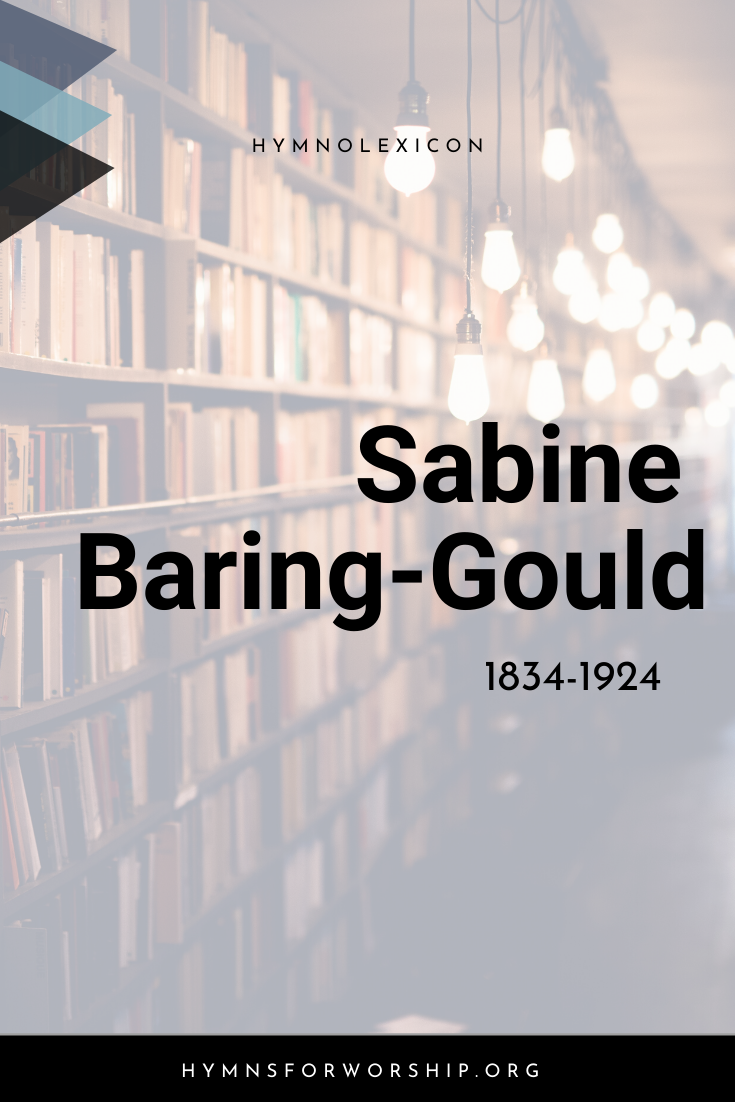Baring-Gould, Sabine
b. January 28, 1834; Exeter, Devon,
d. January 2, 1924; Lew Trenchard, Devon
Early Years and Family Background
- Born the son of a country squire who had been an army officer, he was named after a great-uncle, General Sir Edward Sabine
- Wife, Grace Taylor
Education
- Travelled widely in Europe during his childhood, and was educated very irregularly
- Spent two years at King’s College, London, and one year at Warwick Grammar School, followed by Clare College, Cambridge
Highlights & Accomplishments
- Schoolmaster at Tractarian parish of Pimlico, London, and then at Lancing and at Hurstpierpoint, Sussex
- Took Holy Orders (deacon 1864, priest 1865) and became curate of Horbury and then priest of Horbury Brig (or Bridge), Yorkshire
- Became perpetual curate of Dalton, in the East Riding of Yorkshire, in 1867, and of East Mersea, Essex, in 1871
- Wrote a novel, Mehalah (1880), and the multi-volumed Lives of the Saints (1872-77)
- Became both squire and parson at Lew Trenchard (1881) until his death in 1924
- Collected Devonshire folk songs which led him to publish Songs of the West in instalments in 1889 (revised by his friend Cecil Sharp in 1905)
- He was also known as a voluminous and indefatigable writer who produced fiction, short stories, poems, essays, sermons, religious books, biographies, folk-tales, and guide books
Hymns included in the Seventh-Day Adventist Hymnal
Now the Day is Over, SDAH 52
Onward Christian Soldiers, SDAH 612
JRW. “Sabine Baring-Gould.” The Canterbury Dictionary of Hymnology. Canterbury Press. Web. 20 Aug. 2017.<http://www.hymnology.co.uk/s/sabine-baring-gould>
**Request a correction or addition to this article by emailing us at hymns4worship@gmail.com
Hymns for Worship review these requests regularly and updates will be published as soon as possible
Like this hymn? Share it!


